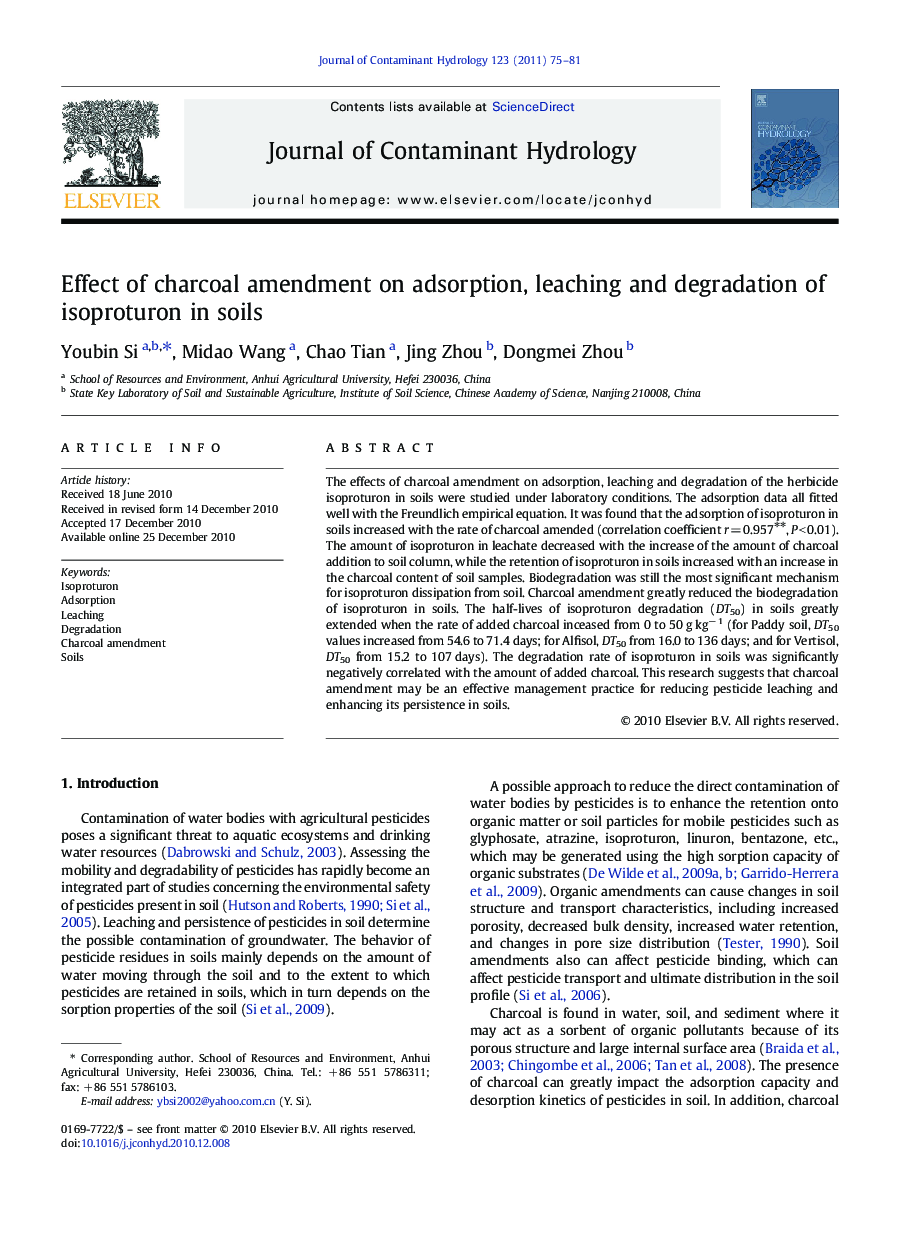| Article ID | Journal | Published Year | Pages | File Type |
|---|---|---|---|---|
| 4547032 | Journal of Contaminant Hydrology | 2011 | 7 Pages |
The effects of charcoal amendment on adsorption, leaching and degradation of the herbicide isoproturon in soils were studied under laboratory conditions. The adsorption data all fitted well with the Freundlich empirical equation. It was found that the adsorption of isoproturon in soils increased with the rate of charcoal amended (correlation coefficient r = 0.957⁎⁎, P < 0.01). The amount of isoproturon in leachate decreased with the increase of the amount of charcoal addition to soil column, while the retention of isoproturon in soils increased with an increase in the charcoal content of soil samples. Biodegradation was still the most significant mechanism for isoproturon dissipation from soil. Charcoal amendment greatly reduced the biodegradation of isoproturon in soils. The half-lives of isoproturon degradation (DT50) in soils greatly extended when the rate of added charcoal inceased from 0 to 50 g kg− 1 (for Paddy soil, DT50 values increased from 54.6 to 71.4 days; for Alfisol, DT50 from 16.0 to 136 days; and for Vertisol, DT50 from 15.2 to 107 days). The degradation rate of isoproturon in soils was significantly negatively correlated with the amount of added charcoal. This research suggests that charcoal amendment may be an effective management practice for reducing pesticide leaching and enhancing its persistence in soils.
Research Highlights▶ Charcoal amendment significantly increased isoproturon adsorption in soils. ▶ Charcoal amendment greatly reduced isoproturon leaching in soils. ▶ Charcoal amendment markedly delayed isoproturon biodegradation in soils. ▶ Charcoal amendment is an effective management practice for reducing herbicide losses.
